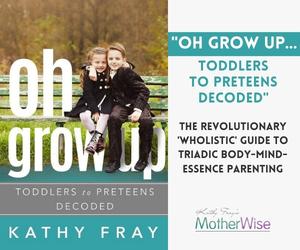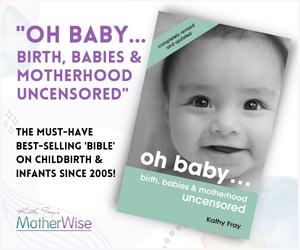This is a tricky question First-World parents often ask, and like so many parenting issues, there is no definitive answer that is appropriate for all circumstances.
Some Western governments have ratified the B.F.H.I. (Baby Friendly Hospital Initiative), which has two primary aims. Firstly, to ensure that all maternity-care facilities instigate the UNICEF/WHO (World Health Organization) “Ten Steps to Successful Breastfeeding”. Secondly, to end the free or low-cost supplies of breastmilk substitutes to maternity-care facilities, as part of the WHO International Code of Marketing of Breastmilk Substitutes. Subsequently, it is now law in those countries, that breastmilk substitutes can not be advertised; that women can not be discouraged from breastfeeding; and that women receive information on formula that is clear and non-promotional.
We all have heard the mantra that “Breast is Best”, however the reality is that breast is not ‘best’ … breastmilk is actually unsurpassable, unequalled and frankly incomparable, especially during the first 6-24 months of life.
I need to explain why – because to make an informed decision on when it is the best time to wean or supplement with formula, we need to understand the implications of the change.
Generally in comparison to formula, breastmilk contains: Fewer solutes reducing the kidneys’ workload; lower casein (curds) making it 100%-completely digestible; the hypoallergenic human whey Alpha lactalbumin (lowers allergic reactions); 100+ kinds of perfectly digestible lipid fatty acids; and optimum levels of most vitamins, minerals and elements. Also uniquely present in human breastmilk, are the optimum levels of hormones and enzymes, highly-absorbable lactose carbohydrates (which together with the lipid fats provide the infant’s body with its energy for metabolic functioning); the beneficial Lactobacillus bifidus flora for colonization and protection of the gut; and the iron-binding Lactoferrin protein which increases iron absorption (while also starving bacteria).
Collectively, this is tremendously advantageous for the infant’s physiological needs of cell structure and function, brain and nervous system development, gastro-intestinal digestion and general growth. For further protection against illness, only breastmilk contains a vast amount of immune proteins including IgA immunoglobulins, Lysozymes and Leukocytic macrophages; which line the gut to protect against intestinal germs, kill bacteria and provide antibodies. All together this is a very strong defence against hospital admissions for Gastroenteritis (stomach-intestine infection causing vomiting and diarrhoea), Pneumonia (lung infection causing respiration problems) and Otitis media (middle-ear infection causing horrid pain) – as these diseases are extremely serious illnesses for young babies, and are substantially more common in formula-fed babes. So statistically breastfed babies are healthier – beyond any doubt.
Statistics also clearly show positive correlations of breastfed babies, later suffering from lower rates of numerous childhood and adult diseases including asthma, eczema, diabetes and obesity. (With a side-benefit being, as a working mum, less time off work caring for an unwell child.) Additionally, breastfeeding is portable and economical; plus it reduces the woman’s chances of pre-menopausal breast cancer, osteoporosis, ovarian cancer and cervical cancer.
Human breastmilk is nature’s perfect food for human babies for the first six months of life, after which solid food is gradually introduced. So to answer the question: When is it the best time to switch to, or supplement with, formula? Well, we’d have to say, ideally never – or at least after age two. Howeverm as that is obviously not always possible, then after the first six months minimum is preferable. (If exclusive breastfeeding is not an option in the early months, then young infants will require an “Infant” or “Starter” formula.)
At 6-12 months onwards, a supplementing “Follow-on” formula can be used, as it provides higher levels of iron, calcium and protein to meet the increasing infant nutrient needs. [Note: “Follow-On” formulas should not be fed to under six-month-olds, as the high protein levels stress young kidneys.]
Two other popular questions I receive are: When should solids be introduced? and What should a baby’s first foods be?
This topic is complex, and more comprehensive information is available in the Starting Solids chapter of my book “OH BABY…Birth, Babies & Motherhood Uncensored” – but below is a brief summary:
- No solid food under four months.
- Breastmilk or formula can be all many babies need up until six months.
- Signs a baby is ready for eating solids includes, being able to sit well in a high-chair, having good head control, starting to put things in his mouth, and perhaps interested in watching other people eat or trying to grab others’ food.
- My personal philosophy is starting with feeding Veggies only e.g. cooked and pureed pumpkin, carrot, courgette (zucchini), and raw mashed avocado.
- Once veggies are progressing well, then introducing fruit, e.g. cooked and pureed apple, apricot, peach, pear, and raw mango, raw ripe mashed banana. (Tinned fruit in natural juice – not syrup – is fine for pureeing.)
- Due to infants’ limited amount of saliva ptyalin enzyme production, avoid starchy foods until their molars are through (their starch grinding teeth). So to avoid mucous-thickening issues (eg asthma, ear-infections and runny-noses), avoid things like rice, farex, bread, biscuits and potatoes … avoid the starch – just stick to veggies, fruit and dairy.
My husband’s 1960’s Plunket Book is an amazing “time-capsule” because in it the Karitane nurse has written down the secretive “formula” (where the term derives from), which was a recipe of boiled water, cow’s milk, fluoride, brown sugar and optionally some barley. Cripes. What a horrific cocktail in comparison to today’s high-tech nutritional alternatives. So if for whatever reason, your young baby requires formula feeds, then do know that it is still way better than what many of us were fed as the epitome of good motherhood, not that long ago!
Love & Light
KATHY FRAY

Kathy Fray is an award-winning best-selling parenting author, passionate promoter of mothers-to-be accessing empowering maternity education, holistically-minded Midwife, and thought-leader of Integrative Maternity Healthcare information.
You might also like to read:









